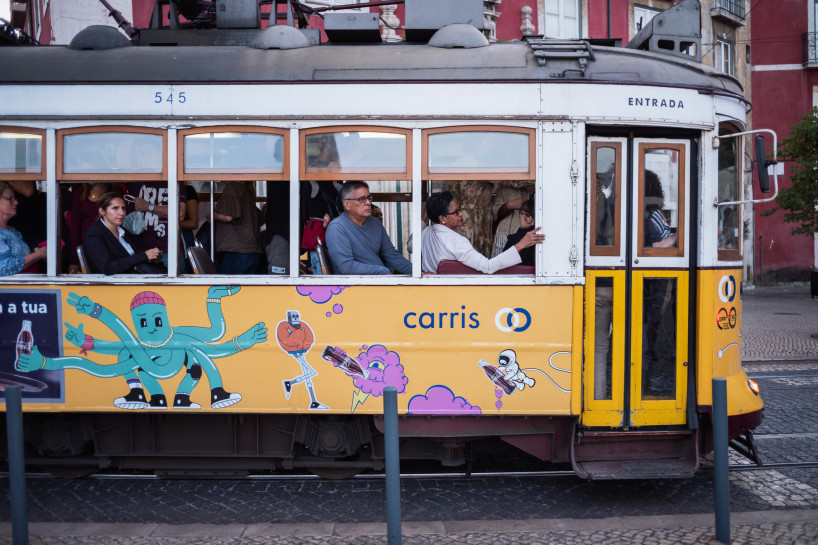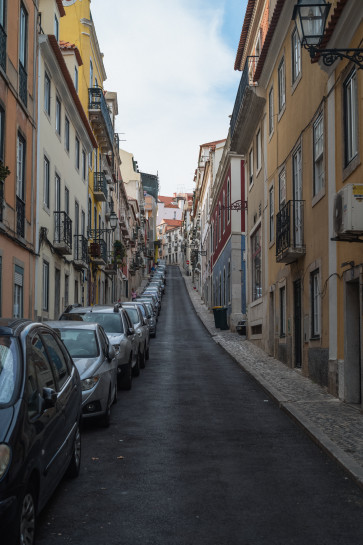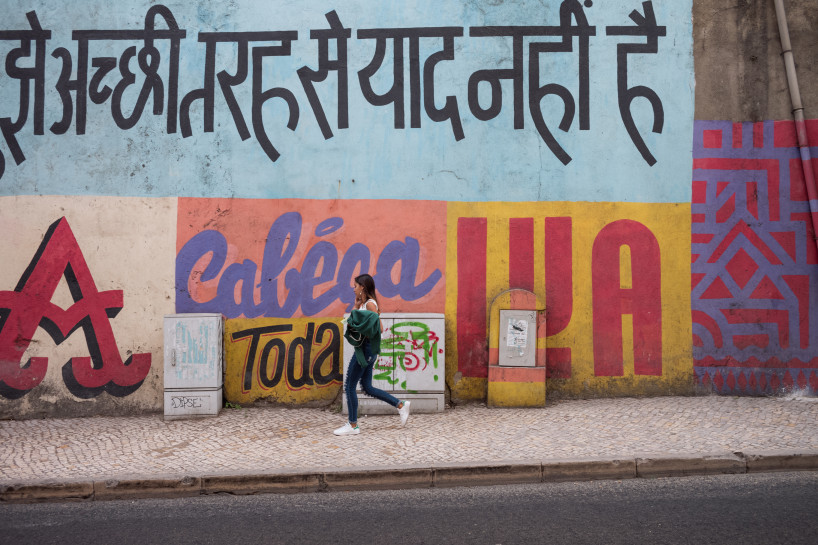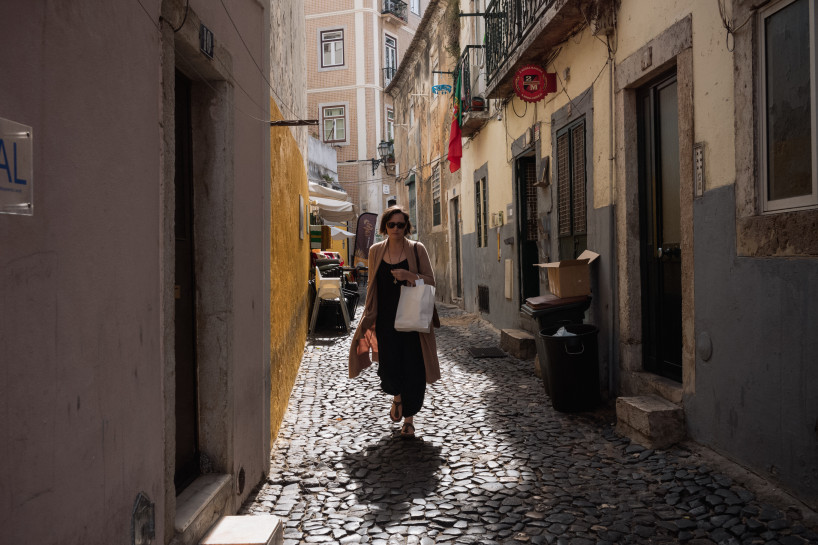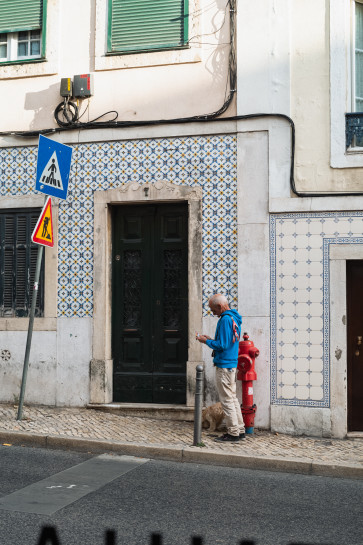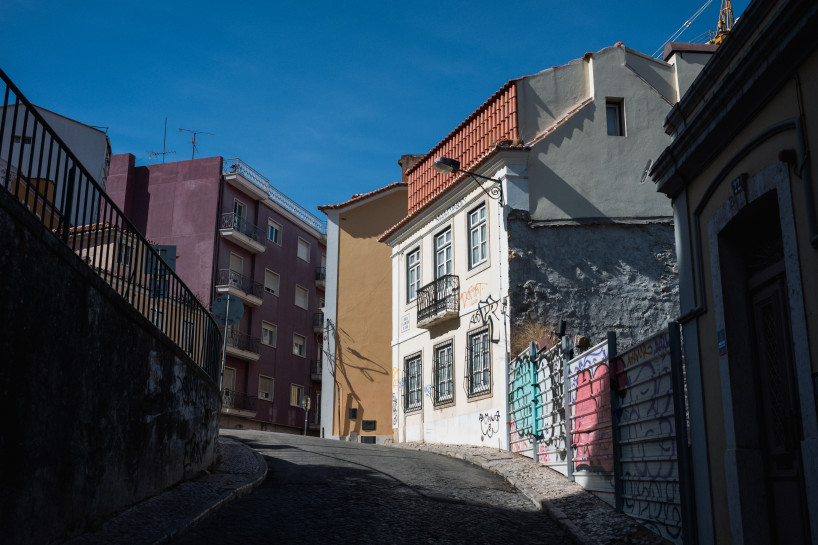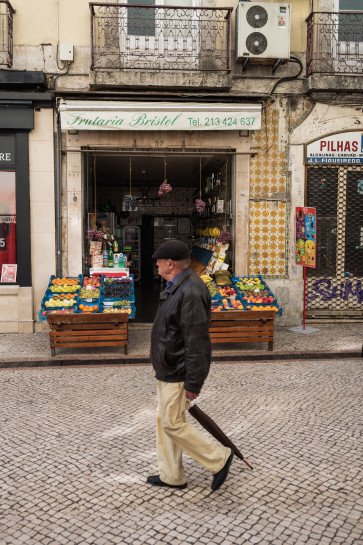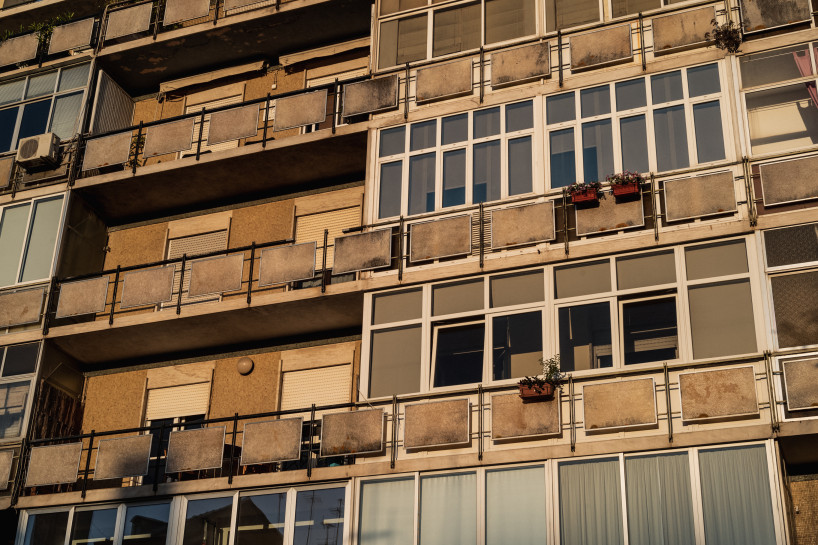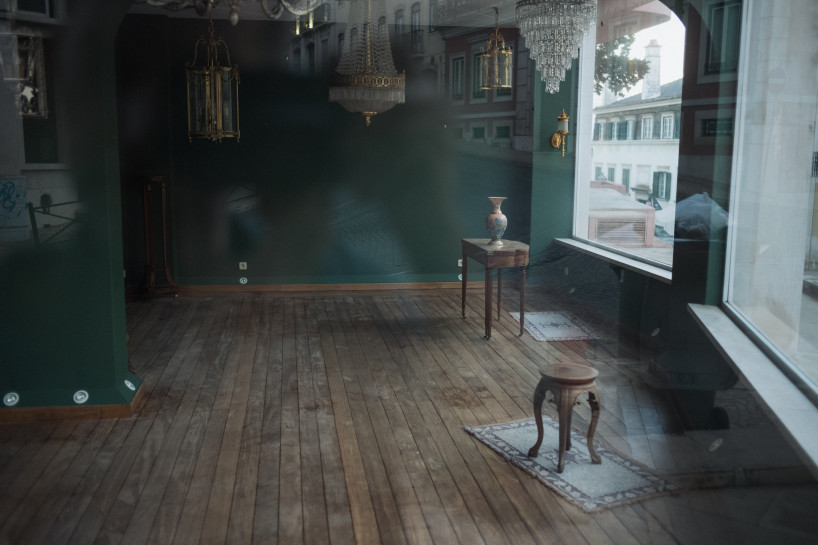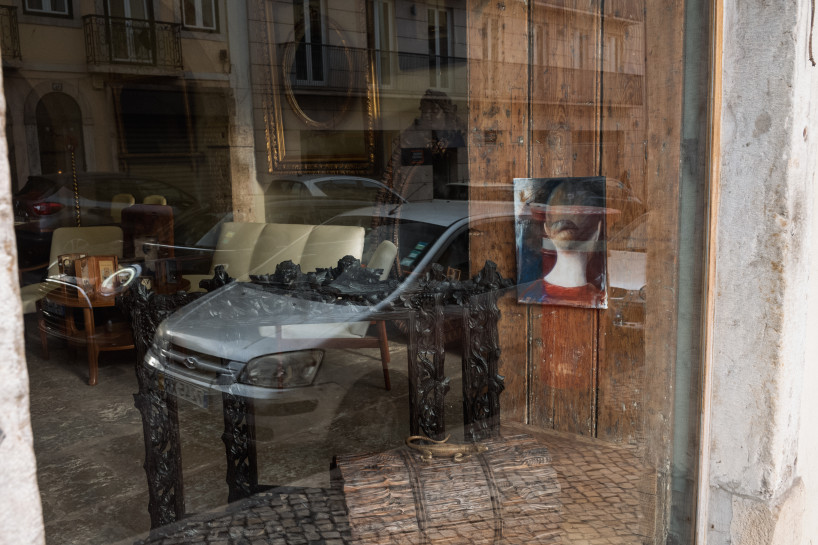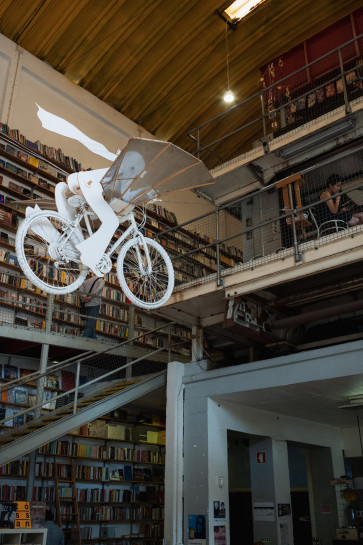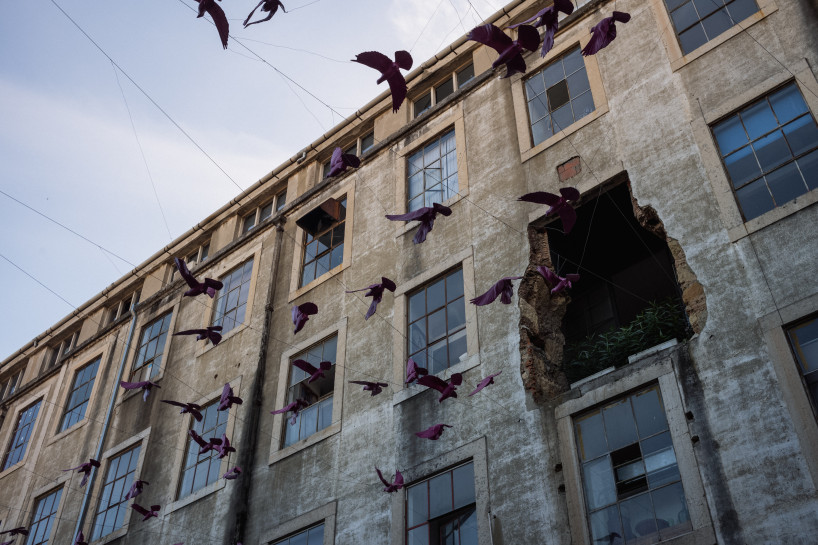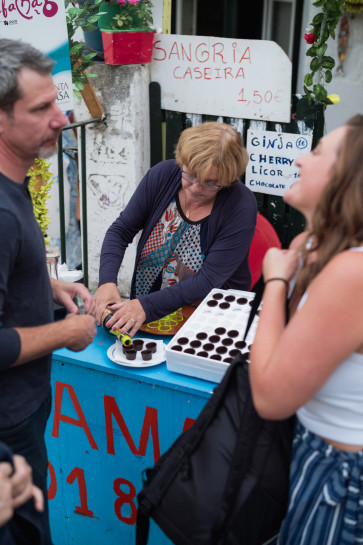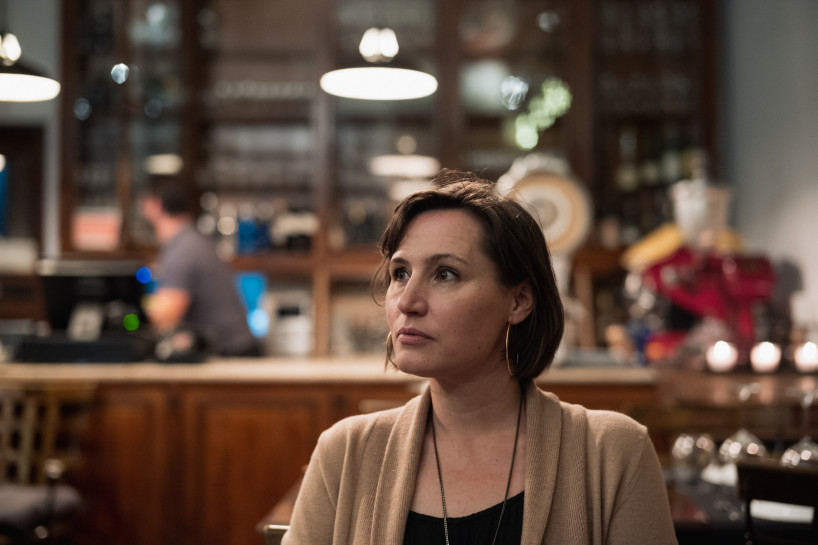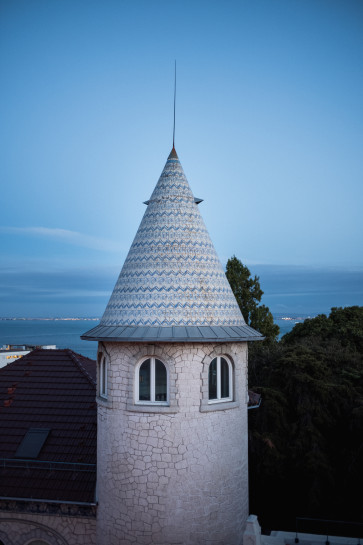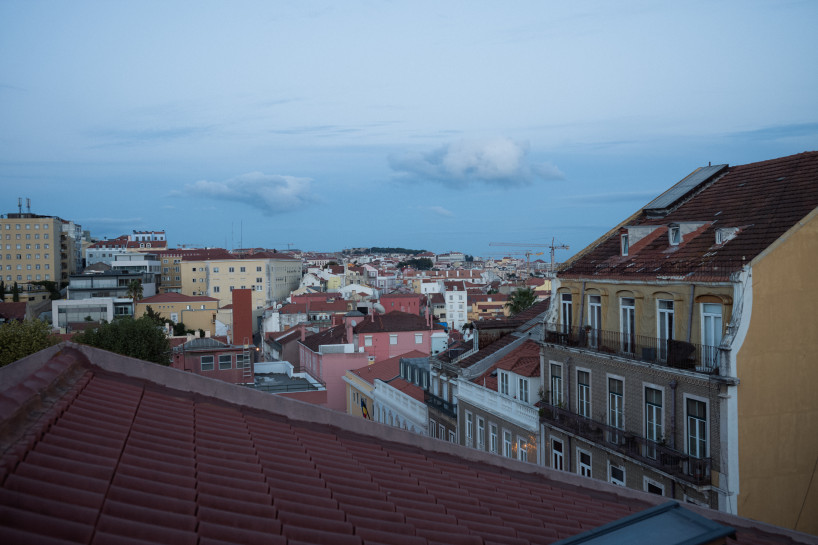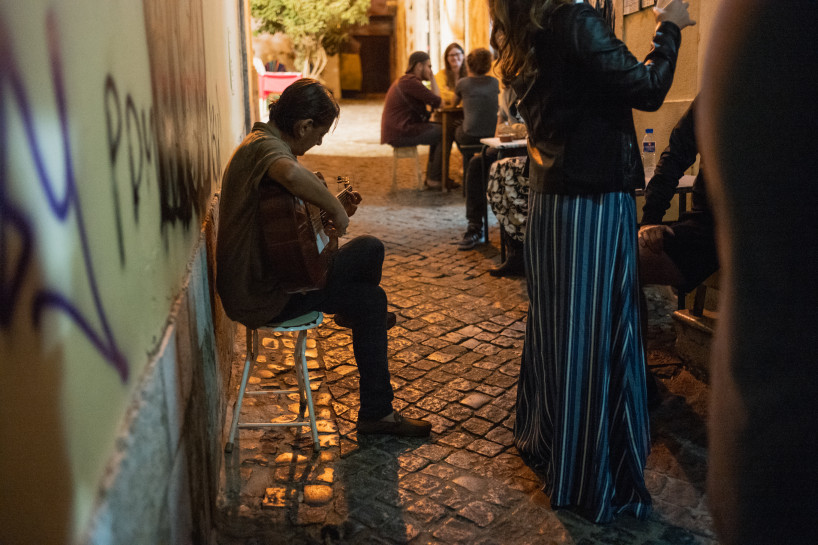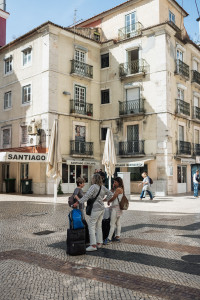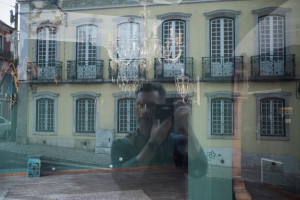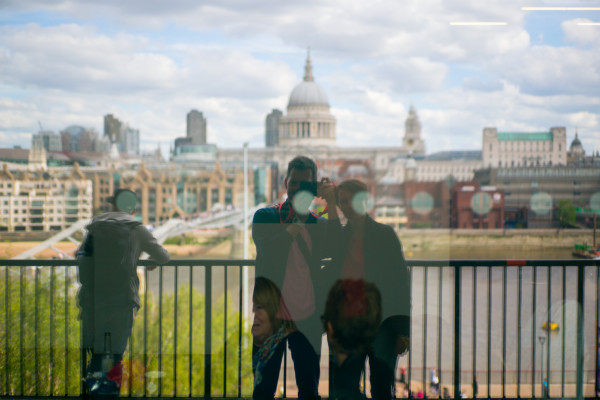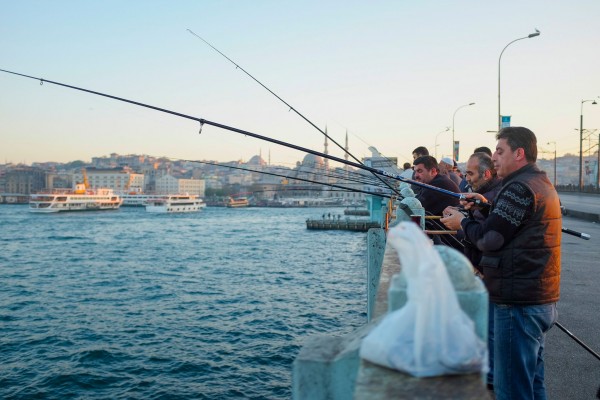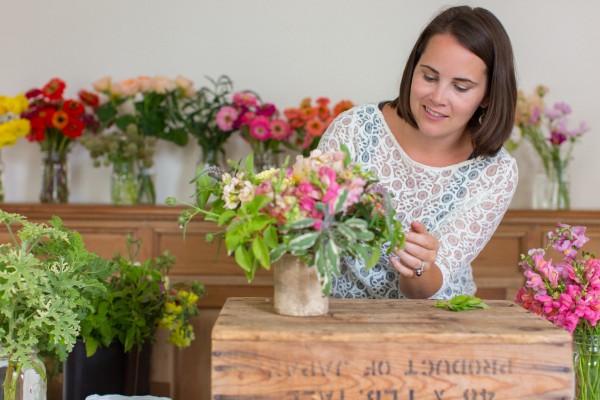“I’m the gap between what I’d like to be and what others have made of me.”
—Fernando Pessoa
Lisbon is where the poet Pessoa found himself. Me? I’m just here to wander its streets.
It’s a beautiful fall day and Dave and I are eating breakfast in the shade of an ash tree watching life go on around us. A yellow trolley stops. People hop on and off. A server delivers a bottle of water and two crepes topped with fried eggs.
I listen to the table next to us. It’s a trio of Americans wearing shorts and visors. Should they walk up the hill to see the Saint Jorge Castle or walk down the hill to see the Belém Tower?
A small luxury car catches our attention. It’s pulling into an impossibly narrow garage. We all wince as the car scrapes the side of the wall. “Why don’t we have crepes like this back home?” I hear someone ask.
We have a few days in the city before heading to Sintra for the wedding we’re in Portugal to attend. We don’t have a guidebook, but we do have a natural inclination towards curiosity and our international friend, Google, to show us around.
Dave spots a small pottery shop and we pick up a lovely water pitcher. It’s painted cream and flecked with hues of blue, orange, and yellow. “It’ll be a nice reminder of our trip,” he says. “Yeah, we’ll look international as we pour glasses of water at the table,” I say waving my hand in the air before continuing, “Why yes, we got this in Lisbon.”
We pay and strike up a conversation with the shopkeeper. He tells us not to keep water in the pitcher for very long because it will leak and also that it was made and painted in India.
We’re wandering down a narrow street when we notice a series of faded portraits hanging along the wall.
“These photographs are a tribute to the elderly who live here” reads a hand-painted sign by an artist named Camilla Watson. “They walk this route daily and their spirit makes this neighborhood special.” It’s one of the most beautiful things I’ve seen. I walk along lightly touching the soft pink walls to see if I can feel the love they hold.
We find ourselves on a busy street full of tourists like us. There are penises everywhere. All in varying sizes. All made of ceramic.
They’re perched on a shelf in a restaurant watching us eat our lunch. They’re refrigerator magnets peering at us through shop windows. They’re spouts on milk pitchers to pour cream into your morning coffee.
They’re painted in hues of flesh and I’m confused by their presence until I read an article that says King Dom Luis of the late 19th century, who I assume had a sense of humor, got tired of tradition and told potters to create something new; something that’d get noticed.
The potters chose the penis. A phallus for the ages.
I pull Dave into a book shop. There’s a man with round glasses on several of the covers. He’s also on socks and buttons. He’s also been made into a mug so you can drink from his head.
I pull out my phone and type into the search bar: man with round glasses Lisbon.
“Fernando Pessoa,” it replies. “One of 26 writers responsible for shaping modern Western Literature. Created 72 heteronyms and 1 semi-heteronym. Published one book in his lifetime. Wrote 2,500 pages mostly about how nothing actually matters. Died of cirrhosis.”
“What’s a heteronym?” I type next.
We take an Uber to LX Factory. Carlos pulls up and tells us he’s the best driver in Lisbon. Ninety seconds later we nearly run someone over.
“Foreigners are moving in,” he says.
“Oh yeah,” I say.
“There are neighborhoods that don’t speak Portuguese anymore.”
“You don’t say.” I add wondering if this is a hook he’s hoping I’ll bite. “Who’s buying up the houses?”
He blares the horn and swivels his head back towards me. “French, British, American, Chinese. Regular Portuguese can’t afford one million euro for a shack.”
“Oh,” I offer, unsure what to say next. I’m out of context here and I think we both know it.
“The weather is beautiful all year. That’s why you all come,” he says as Dave and I exit the car. I grab a little mint from the handle of the door. Nice touch, I think. I’ll leave that note in the review.
We zigzag through the outdoor cooperative industrial complex. “Everyone here is gorgeous,” Dave says and I notice it too. Beautiful shoppers carry bags across the gravel street, stopping to take photos of the art that is everywhere. I get in line for the bathroom. Its plaster walls are painted with clown faces.
We duck into a vintage shop, a motorcycle shop, and an art boutique. There’s another bookstore with a large hanging sculpture of a man flying over our heads. I tell Dave to move out of the frame then snap a picture with my phone.
There’s a series of steps that wind up through a neighborhood. The steps take you to a little square surrounded by houses that lead to another series of steps that lead you to another little square further up the hill. Along the way are a series of older women seated behind or beside folding tables. They motion to us. Dave and I nod our heads. “Ginja,” she says pointing to a sign written with a fat-tipped marker: Ginjinha 1 euro. Each of them tells us the cherry-flavored liqueur is their own unique blend.
There are tables everywhere. The ginja is served in plastic shot glasses but for a euro more they’ll give it to you in an edible chocolate cup. We tell each woman hers was the best as we continue our ascent towards dinner.
We pass by a series of doors with signs that say, “Fado Inside, 8 p.m.” But it’s nearly 10 p.m. now so we keep walking.
The restaurant is nestled at the base of an old building wedged into the earth. We’re the only ones there.
“You’re Americans, yeah?” the owner of the restaurant says to us.
“How can you tell?” I ask thinking it’s our accent.
“You smile a lot.”
I ask him what dish they’re known for and he explains it’s a Portuguese kind of stew. I say I’ll have that and he looks at me puzzled. “Oh, is that okay?” I ask.
“Americans always order the chicken,” he says. “You always want the chicken.”
“Ah,” I say smiling. “Well, tonight is different I guess.”
Dave and I finish our meals and leave to meet up with the bridal party. They’re getting drinks down the way. We find the spot which is really just a small counter, a few lightbulbs, and a woman leaning on the bar who asks us what we want. I get a sangria because it’s what’s pictured on the poster next to her.
We take our drinks and find a narrow table outside under a spray painted wall that reads, “Fuck the Patriarchy.”
The alley fills with laughter and music as we sit under the warm yellow glow of street lights.
And I fall in love with Lisbon.

